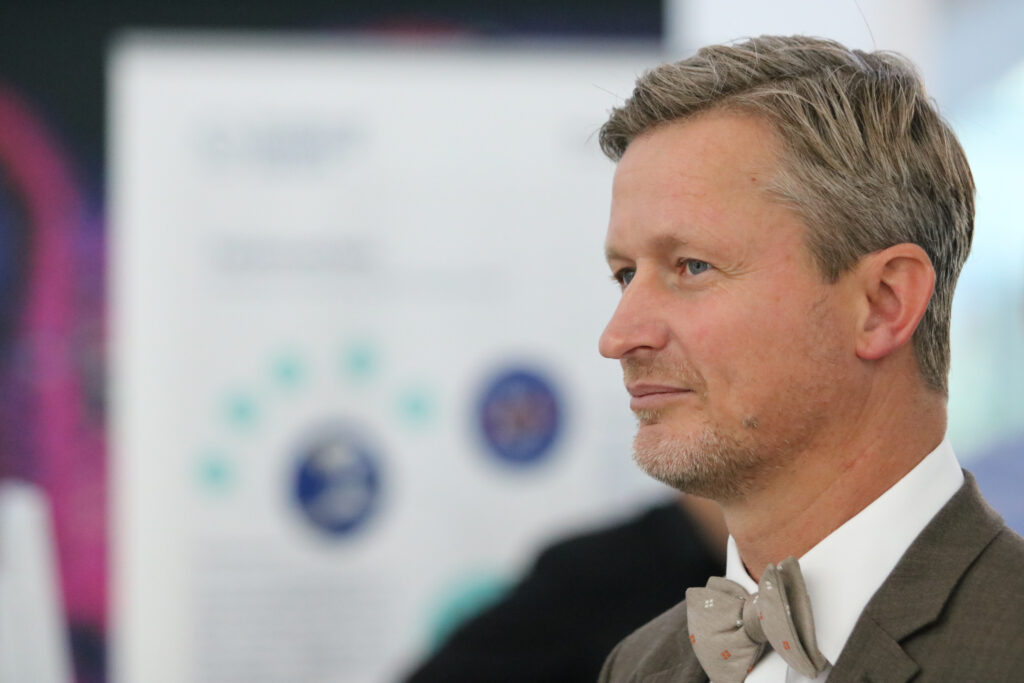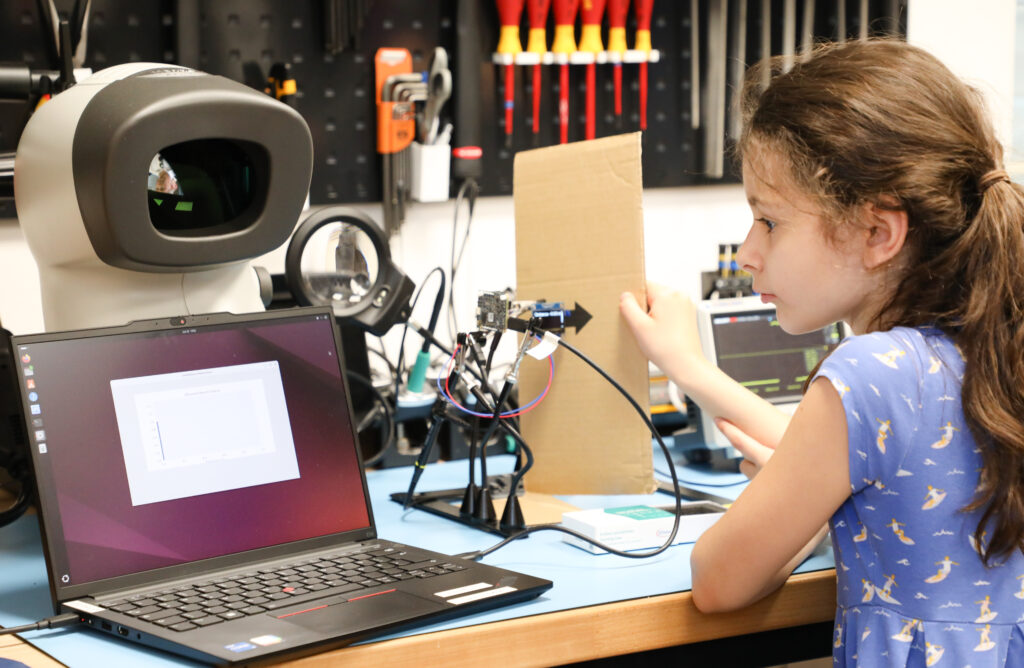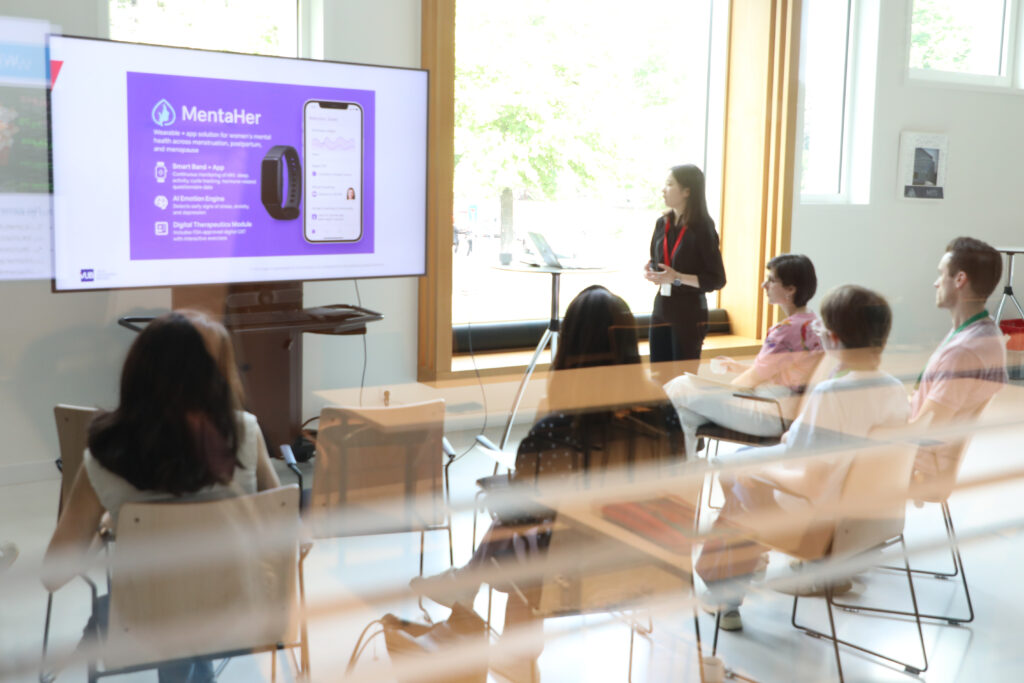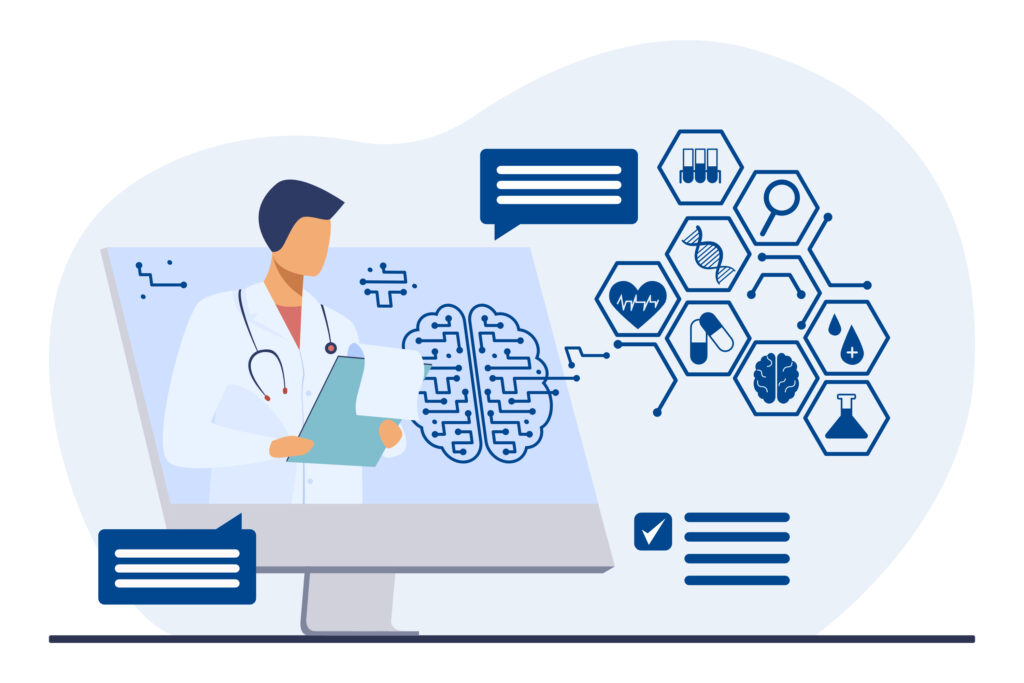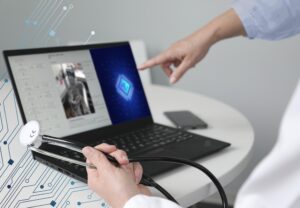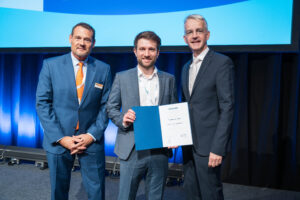State Secretary Dr. Andreas Handschuh and Dean of the Faculty of Medicine Prof. Esther Troost opened the two-day MedTech conference with inspiring greetings in front of around 200 participants. Numerous demonstrations and prototypes of our innovation projects, thematically wide-ranging lectures as well as networking pitches gave the participants a comprehensive insight into medical technology innovations as well as current trends and news from the digital health scene.
At the EKFZ | InnoDays we set impulses, initiate promising developments and share our constantly growing network in the medical and high-tech scene of Dresden and beyond. In network pitches, scientists with innovative ideas had the exclusive chance to pitch their projects to a broad audience. This leads to additional matches from medicine and high-tech experts and expands the network of EKFZ.
Keynote speakers look into the future of medical technology
Digitization is a key technology that will profoundly change healthcare delivery and research as well as clinical practice. Renowned keynote speakers from science and industry gave the audience a glimpse into the future of medical technology and digital healthcare. Prof. Christoph Keplinger, Director of the Max Planck Institute for Intelligent Systems, gave an overview of the latest research results on the development of artificial muscles and their applications in robotics. This new class of self-sensing, high-performance artificial muscles, called hydraulically augmented self-healing electrostatic actuators (HASEL), has been pioneered by the research group of the Robotic Materials Department. PD Dr. med. Daniel Truhn, senior physician at the University Hospital Aachen, explained why mutual understanding is of enormous importance in the interaction between users and machine learning models, and shed light on how similar humans and machines are when it comes to evaluating data and what pitfalls to watch out for. Prof. Tjalf Ziemssen, head of the Multiple Sclerosis Center at Dresden University Hospital, explained the benefits, challenges and practical aspects that need to be considered when implementing a digital twin in MS therapy. Prof. Christian Johner, head of the Johner Institute, summarized the impact of regulatory requirements on medical devices, which are newly regulated by the EU Medical Device Regulations MDR and IVDR, and gave an outlook on how the muddled situation could be resolved. Constantinos Patsakis, associate professor at the University of Piraeus, elaborated on why cybersecurity is particularly important in healthcare and what theoretical information security principles should be applied in practice.
IIPs present prototypes and demonstrators
At the EKFZ for Digital Health, numerous innovative medical technology projects have been funded and prototypes developed in recent years. In an exhibition, the teams of the interdisciplinary innovation projects presented first prototypes and demonstrators, which the participants could test. We thank our innovation teams, the speakers as well as an open-minded audience for making the EKFZ | InnoDays 2022 a great success.
We look forward to numerous interested participants at the next EKFZ | InnoDays from September 14, 2023.
More News
Femtech, Ethics & Innovation: Highlights from the HALL-EKFZ Summer School 2025


